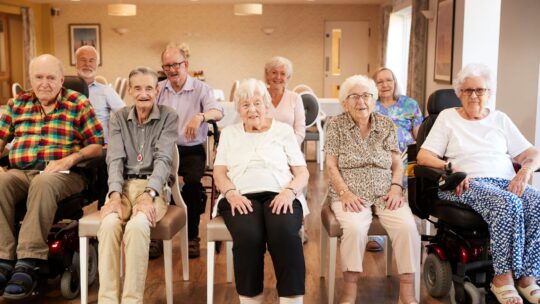
Creating an environment that supports individuals with cognitive impairments is essential for enhancing their quality of life. Memory care facilities, designed specifically for people with conditions such as Alzheimer’s disease and other forms of dementia, must employ thoughtful strategies and best practices to ensure the well-being of their residents. This article explores key strategies and best practices for creating a supportive environment in memory care facilities, emphasizing how these approaches contribute to a better living experience for residents.
Understanding the Unique Needs of Memory Care Residents
Memory care residents have unique needs that differ from those in other senior living settings. Individuals with cognitive impairments require specialized care that addresses their specific challenges, such as memory loss, confusion, and behavioral changes. Understanding these needs involves recognizing the importance of a personalized approach to care, which ensures that each resident receives the support they require to maintain their dignity and comfort.
Designing a Safe and Navigable Physical Environment
The physical environment of a memory care facility plays a crucial role in supporting residents’ well-being. A safe and navigable environment helps reduce confusion and prevent accidents. Design elements such as clear signage, contrasting colors, and simple layouts contribute to a more user-friendly space. Ensuring that the facility is easy to navigate and free from potential hazards is essential for creating a supportive environment for memory care residents.
Implementing Personalized Care Plans
Personalized care plans are central to effective memory care. These plans are developed based on each resident’s individual needs, preferences, and cognitive abilities. By tailoring care to the specific requirements of each resident, facilities can provide more effective support and address a range of issues, from daily routines to engaging activities. Personalized care plans help ensure that residents receive the attention and care they need to thrive.
Utilizing Technology for Enhanced Care
Technology can significantly enhance the quality of memory care by providing tools that support both residents and caregivers. Examples include electronic health records, medication management systems, and cognitive stimulation apps.

These technologies can improve the efficiency of care delivery, facilitate communication, and offer residents engaging and interactive experiences that stimulate cognitive function.
Creating a Stimulating and Engaging Activity Program
Engaging activities are vital for maintaining cognitive function and emotional well-being in memory care residents. An effective activity program should include a variety of activities that stimulate the mind and provide opportunities for social interaction. Art therapy, music therapy, and reminiscence activities are examples of programs that can help residents connect with their past and express themselves creatively.
Providing Emotional and Behavioral Support
Residents with cognitive impairments often experience emotional and behavioral challenges that require specialized support. Facilities should implement strategies to address these issues, including personalized behavioral management plans and therapeutic interventions. Providing emotional support and understanding helps create a safe and supportive environment where residents feel valued and cared for.
Encouraging Family Involvement
Family involvement is a key component of successful memory care. Engaging family members in the care process can provide valuable insights into the resident’s history and preferences. Regular communication and visits from family members help maintain strong connections and offer additional emotional support. Memory care facilities should foster an environment that encourages family participation and collaboration.
Training and Supporting Caregivers
Well-trained caregivers are essential for delivering high-quality memory care. Training programs should focus on understanding dementia, managing challenging behaviors, and providing compassionate care.

Ongoing support and education ensure that caregivers remain informed about best practices and new developments in memory care, enhancing their ability to support residents effectively.
Integrating Wellness Programs
Wellness programs are an important aspect of memory care, addressing both physical and mental health needs. Programs that include physical exercise, nutrition counseling, and mental health support contribute to overall well-being. Regular physical activity and a balanced diet can improve cognitive function and reduce the risk of health issues, supporting residents’ overall health and quality of life.
Evaluating and Improving Care Practices
Continuous evaluation and improvement of care practices are crucial for maintaining high standards of memory care. Facilities should use assessments and feedback from residents and families to gauge the effectiveness of their care programs. This information can be used to refine practices and ensure that the facility meets the evolving needs of its residents, promoting a supportive and responsive care environment.
For those interested in experiencing a supportive and innovative approach to memory care, Vivante Living’s Newport Center offers a comprehensive environment designed to enhance the lives of individuals with cognitive impairments. The Newport Center provides personalized care plans, a thoughtfully designed physical environment, and engaging activities that contribute to a high quality of life for its residents. By focusing on individualized support and continuous improvement, the Newport Center exemplifies best practices in memory care.
In conclusion, creating a supportive environment for memory care involves implementing strategies and best practices that address the unique needs of residents. From personalized care plans and safe physical environments to engaging activities and family involvement, these approaches contribute to a better quality of life for individuals with cognitive impairments. As memory care continues to evolve, ongoing efforts to improve and innovate will further enhance the well-being of those affected by cognitive challenges. So, if you wish to experience life at Vivante, let us know!


















